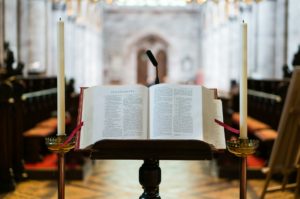
Lauded for his scientific discoveries and inventions (e.g., the first mechanical calculator, the syringe, and various geometric and mathematical discoveries), Blaise Pascal (1623 – 1662) struggled to find satisfying answers to the riddle of the human experience. Most crushing to his scientific mind was the lack of certitude attendant to both religion and speculative sciences.
Late in the evening of November 23, 1654, the troubled soul of Pascal found rest. For several hours he experienced the presence of God in an ecstasy. Either during or just after this occurrence, he jotted down his impressions and sewed them into his doublet1 as a reminder of his new-found freedom from doubt. The following was found only after his death, hidden away in his garment to comfort this great scientist and philosopher in moments of doubt.2
God of Abraham, God of Isaac, God of Jacob, not of the philosophers and scholars.
Certitude, certitude, feeling, joy, peace.
God of Jesus Christ.
Deum meum et Deum vestrum.3
Thy God will be my God.
Forgetfulness of the world and of everything, except GOD.
He is to be found only by the ways taught in the Gospel.
Greatness of the human soul.
O righteous Father, the world hath not known thee, but
I have known thee.
Joy, joy, joy, tears of joy.
I have been separated from him.
Dereliquerunt me fontem aquae vivae.4
My God, wilt thou forsake me?
Let me not be separated from him eternally.
This is the eternal life, that they know thee as the only
true God, and the one whom thou hast sent, Jesus Christ.
Jesus Christ,
Jesus Christ.
I have been separated from him; I have fled him, renounced
him, crucified him,
Let me never be separated from him.
He is preserved only by the ways taught in the Gospel.
Renunciation, total and sweet.
Footnotes:
1 A form-fitting outer garment, often with a skirt, worn during the Renaissance by men.
2 Blaise Pascal, “Pascal’s Memorial,” quoted in Morris Bishop, Pascal: The Life of Genius (New York: Reynal & Hitchcock, 1936), 173.
3 My God and your God.
4 They have forsaken me, the fount of living water.




